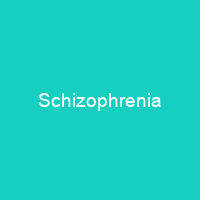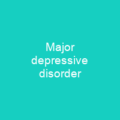Schizophrenia: A Complex Mental Disorder
Imagine a world where your mind is torn apart by voices that no one else can hear or beliefs that seem entirely real to you, but are not shared by anyone around you. This is the reality for millions of people living with schizophrenia. How many times have we heard about this mysterious condition in movies and TV shows, only to find out it’s far more complex than what we see on screen?
The Symptoms of Schizophrenia
Schizophrenia is a mental disorder characterized by hallucinations, delusions, disorganized thinking and behavior, and flat or inappropriate affect. These symptoms can be overwhelming and often lead to social isolation and significant impairment in daily life. How many times have you wondered what it would feel like to experience these symptoms?
The Diagnosis Process
Diagnosing schizophrenia is not as straightforward as running a blood test or taking an X-ray. Doctors rely on observed behavior, psychiatric history, and reports from others familiar with the person. Can you imagine how challenging it must be for healthcare professionals to navigate these complex symptoms?
The Causes of Schizophrenia
The causes of schizophrenia are still largely unknown, but a neurodevelopmental disorder model is prevailing, suggesting interactions between genes and environment. Genetic factors account for 70-80% of the individual differences in risk, with family history being a significant factor. Is it possible that our genetic makeup plays a crucial role in determining whether we develop this condition?
Risk Factors
Risk factors for schizophrenia include childhood adversity, cannabis use during adolescence, infections, and poor nutrition during pregnancy. Environmental factors such as living in an urban environment or exposure to certain infections can also increase the risk. How many of these factors are within our control?
Treatment Approaches
The mainstay of treatment for schizophrenia is antipsychotic medication, including olanzapine and risperidone, along with counseling and social rehabilitation. Clozapine is often offered for those who do not respond to initial antipsychotics. Are these medications effective in managing the symptoms?
Cognitive Deficits
Cognitive deficits are a core feature of schizophrenia, affecting around 70% of those with the condition. These deficits can worsen at first episode psychosis but return to baseline over time. Cognitive remediation therapy can help improve these symptoms. Can cognitive training really make a difference?
The Impact on Quality of Life
Schizophrenia has a significant impact on quality of life, with higher suicide rates and more physical health problems leading to an average decrease in life expectancy by 20-28 years. Social problems such as unemployment and homelessness are commonly correlated with schizophrenia. How does this condition affect not just the individual but their entire community?
Prevention and Early Intervention
Early intervention programs diagnose and treat patients in the prodromal phase of the illness, which can reduce symptoms and improve outcomes. Cognitive behavioral therapy may help prevent psychosis in those at high risk. Can we really prevent schizophrenia or is it too late once the symptoms start?
The Future of Schizophrenia Research
Research directions include studying brain stimulation techniques, biomarkers for diagnosis and treatment, and exploring new treatments for auditory verbal hallucinations. MicroRNAs are highly influential in early neuronal development and disruption is linked to CNS disorders. Are we closer than ever to finding a cure?
The Importance of Understanding Schizophrenia
Schizophrenia affects 0.3-0.7% of people globally, with an estimated 1 million new cases in 2017 and 24 million total cases reported by the WHO in 2022. It occurs 1.4 times more frequently in males than females and typically appears earlier in men. Understanding schizophrenia is crucial for breaking down stigma and providing better support to those affected.
The journey towards understanding and treating schizophrenia continues, with each new discovery bringing us closer to a world where this condition no longer defines the lives of millions. As we delve deeper into research and treatment options, let’s remember that every individual is unique, and their experience with schizophrenia is just as diverse as the condition itself.

You want to know more about Schizophrenia?
This page is based on the article Schizophrenia published in Wikipedia (retrieved on February 6, 2025) and was automatically summarized using artificial intelligence.





